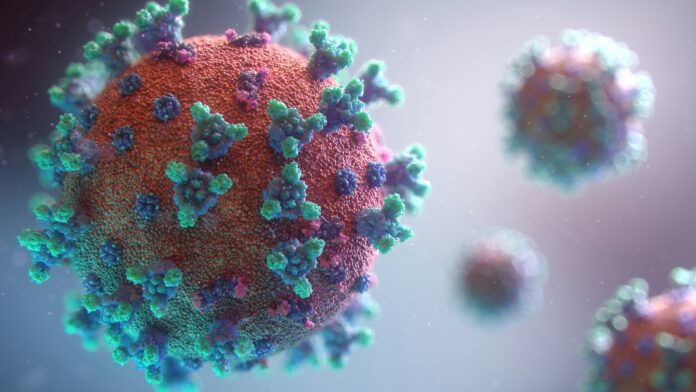Doctor Daniel Rhoads identifies KP.3 variant’s evolutionary advantages amid rising COVID-19 hospital admissions in the UK
Amidst a backdrop of increasing COVID-19 cases, a new variant, KP.3, is raising alarms as hospitalizations surge across the United Kingdom. Leading the warning is Doctor Daniel Rhoads, Head of Microbiology at the Cleveland Clinic and Vice Chair of the Microbiology Committee, who sheds light on the KP.3 variant’s concerning attributes within the FLiRT group of COVID-19 variants.
Recent data from the UK Health Security Agency (UKHSA) reveals a notable 24 per cent rise in hospital admissions during the week ending June 16, climbing from 2.67 to 3.31 admissions per 100,000 people. This uptick predominantly affects older adults, with hospitalization rates peaking at 34.70 per 100,000 among those aged over 85.
Doctor Rhoads points to mutations in KP.3’s spike protein as the primary driver behind its increased transmissibility and immune evasion capabilities. These genetic adaptations allow KP.3 to spread more efficiently and potentially evade immune responses triggered by vaccinations or prior infections.
“In essence, KP.3 has found a ‘sweet spot’ in its evolutionary path, balancing heightened infectivity with the ability to evade immune defences,” Doctor Rhoads explained in an interview with GB News. This assessment is supported by preliminary research from Japanese scientists, indicating that KP.3 may be more infectious than its predecessor, JN.1, and possess enhanced immune evasion properties.
Despite these concerns, health authorities emphasize that there is no conclusive evidence suggesting KP.3 causes more severe illness compared to other variants. The UKHSA spokesperson notes that current data reflects a relatively low baseline of infections, influenced by both natural immunity and widespread vaccination efforts.
However, vigilance remains crucial. Symptoms associated with KP.3 infection typically mirror those of a common cold, including fever, cough, fatigue, and loss of taste or smell. Government guidance advises individuals testing positive for Covid-19 to self-isolate for at least five days and avoid contact with vulnerable populations to mitigate transmission risks.
Analysis:
Political Perspective: The emergence of the KP.3 variant amid rising hospitalizations poses significant challenges for political leaders and health authorities. Governments may face pressure to reimpose or strengthen public health measures such as mask mandates, social distancing guidelines, and vaccination campaigns. The effectiveness of political responses will be crucial in containing the variant’s spread while balancing public health with economic considerations. International cooperation in genomic surveillance and sharing data on variant transmission will also be pivotal in tracking and responding to emerging variants like KP.3.
Social Perspective: Socially, the resurgence of COVID-19 hospitalizations due to KP.3 underscores ongoing debates around public health policies and individual responsibilities. The variant’s impact on vulnerable populations, including the elderly and immunocompromised, highlights disparities in healthcare access and the need for equitable vaccine distribution. Communities may experience heightened anxiety and fatigue over prolonged pandemic impacts, necessitating clear and consistent communication from health authorities to maintain public trust and compliance with preventive measures.
Economic Perspective: Economically, the rise in hospital admissions linked to KP.3 could strain healthcare systems, leading to increased healthcare costs and potential workforce disruptions. Businesses reliant on in-person activities may face renewed challenges if restrictions are reintroduced, affecting sectors such as hospitality, travel, and retail. Governments may need to consider targeted economic support for affected industries and individuals, alongside investments in healthcare infrastructure to manage current and future waves of Covid-19 variants effectively.
Gender Perspective: From a gender perspective, the impact of KP.3 on Covid-19 outcomes may vary. While initial data suggests similar infection rates across genders, differences in health-seeking behaviours and immune responses may influence recovery and long-term health outcomes. Health strategies should consider gender-specific factors such as hormonal differences and caregiving responsibilities, ensuring equitable access to healthcare services and vaccination efforts for all individuals.
Racial Perspective: Racial disparities in COVID-19 outcomes continue to be a concern, with marginalized communities often experiencing higher infection rates and poorer health outcomes. Variants like KP.3 may exacerbate these disparities due to underlying social determinants of health, including access to healthcare, socioeconomic status, and structural inequalities. Addressing vaccine hesitancy and ensuring culturally competent healthcare services are critical in mitigating the variant’s impact on vulnerable racial and ethnic groups and promoting health equity.
